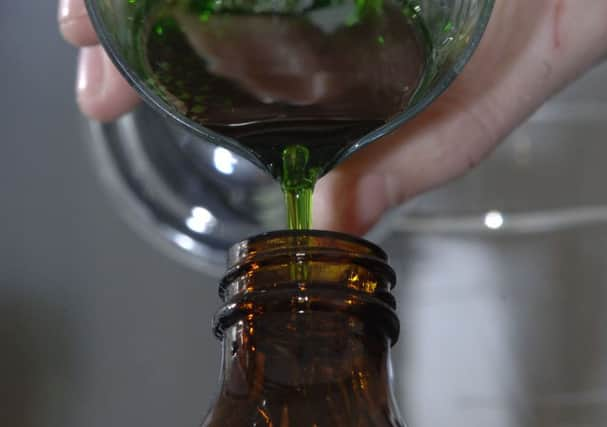Drug death victims average age rises from 28 to 40


Figures released yesterday by the National Records of Scotland show there were 613 drug-related deaths in 2014, a 16 per cent increase on the previous year.
The figure is the highest since records began almost 20 years ago and represents a 72 per cent rise in the past decade.
Advertisement
Hide AdAdvertisement
Hide AdThe Scottish Government said it faced a “huge challenge” in addressing the issue, but experts said cuts to drug treatment programmes were to blame for the increase in deaths.
Men account for nearly three-quarters of the deaths, with opiates including heroin and methadone implicated in or contributing to 87 per cent of cases.
The average age of a person dying of drug-related causes has further increased to 40 in 2014 – up from 28 in 1996.
Community safety minister Paul Wheelhouse said: “While there has been some progress in tackling problem drug use, Scotland still faces a huge challenge in tackling the damaging effects of long-term drug use among an ageing cohort of individuals in Scotland.
“This group often have long-term, chronic health problems as a result of sustained and, in many cases, increasingly chaotic drug-use issues. Pinpointing a cause of death is never easy, but is typically complex.”
Dave Liddell, director of the Scottish Drugs Forum, said: “The age of those dying continues to reflect an ageing group of problem drug users – the majority of overdose deaths now occur in those aged 35 and over.
“Those who are dying are, in most cases, the most vulnerable of the people in Scotland with a drug problem. As a result, we must work with services to see how we can engage better with this group as there is strong evidence that engagement with services is a protective factor in reducing overdose deaths.”
But Calum Murray, director of adult care at CrossReach, the Church of Scotland’s social care arm, said funding cuts to alcohol and drugs partnerships were linked to the rise in deaths.
Advertisement
Hide AdAdvertisement
Hide AdMr Murray said: “Much like alcohol-related deaths statistics published last week, the increase in drug-related deaths in Scotland is a great cause for concern.
“These figures are deeply distressing and alcohol and drugs partnerships are struggling due to increasing demand for their services while central government funding diminishes.
“It would appear to be related that less funding for treatment leads to more deaths. I am greatly saddened by these figures because behind every one of these statistics is a tragic back story for families who merit great sympathy and understanding.”
Over 90 per cent of deaths involved a combination of drugs, with the underlying cause of death recorded as accidental poisoning in the majority of cases.
Heroin and/or morphine was implicated or contributed to more than half of cases - more than in any of the previous four years. Methadone was implicated in or contributed to 214 deaths (35 per cent), fewer than in any of the three previous years.
Benzodiazepines such as diazepam were linked to 121 deaths, cocaine 45 deaths; ecstasy-type drugs 14 deaths and amphetamines 22 deaths.
Statisticians said the re-classification of the painkiller tramadol as a controlled drug in 2014 - meaning it was included in the figures for the first time - had also had an impact on the overall rise. There were more than 24 deaths linked to the drug.